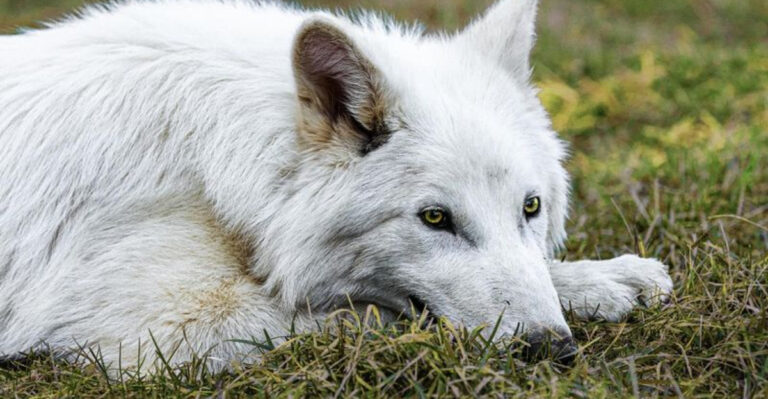Why Do Dogs Howl? 8 Common Reasons Explained
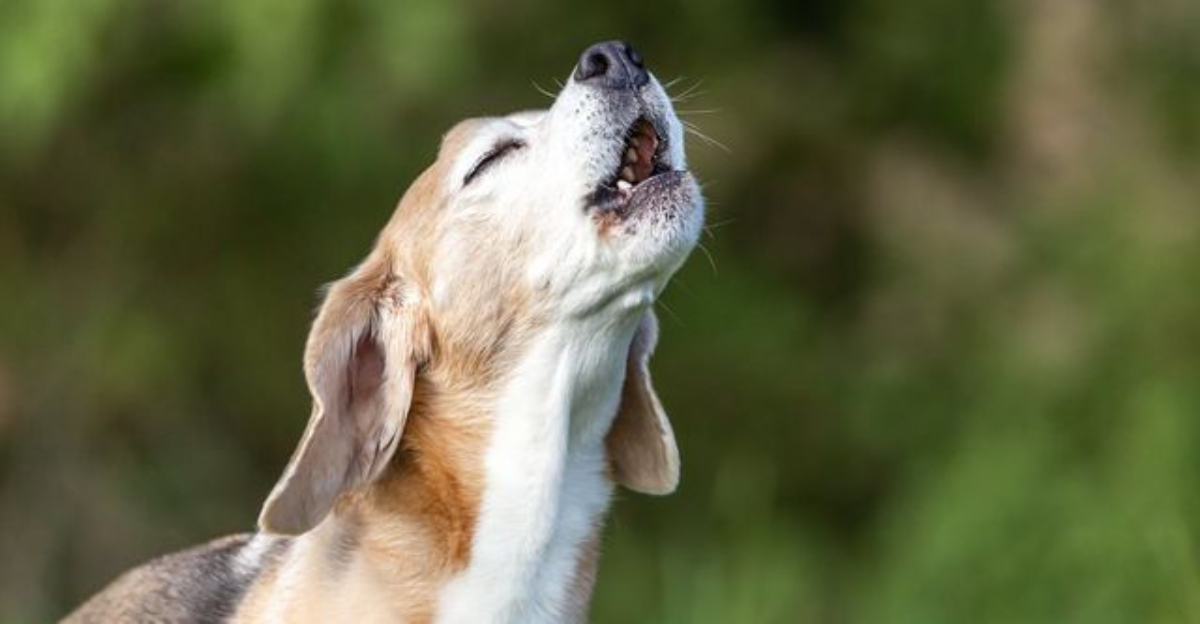
Ever wondered why your furry friend suddenly belts out a soulful howl? While it might seem random, there’s usually a reason behind your dog’s vocal performance.
From communicating with other dogs to responding to high-pitched sounds, each howl is unique.
Let’s explore 8 common reasons why dogs howl, shedding light on this intriguing behavior. You’ll discover howling isn’t just noise – it’s a form of expression for our canine companions.
1. Communication With Others
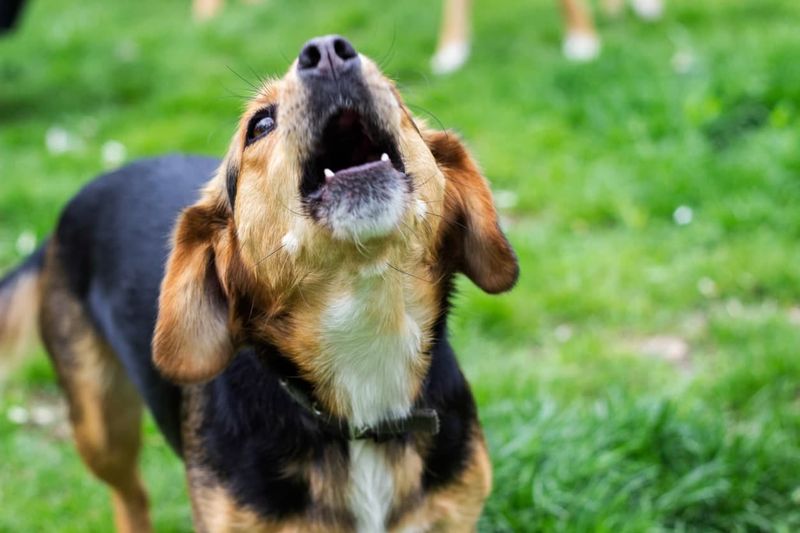
Dogs are social creatures, and howling is part of their natural communication toolkit.
Imagine your pup joining a canine chorus, announcing their presence to the neighborhood. This form of communication is deeply rooted in their ancestry.
When dogs howl, they might be trying to connect with other dogs, near and far. It’s like sending a vocal postcard to say, “I’m here!”
Next time your dog howls, picture them participating in a distant conversation. Howling helps maintain their social bonds, proving it’s not just noise but meaningful interaction.
2. Response To Sounds
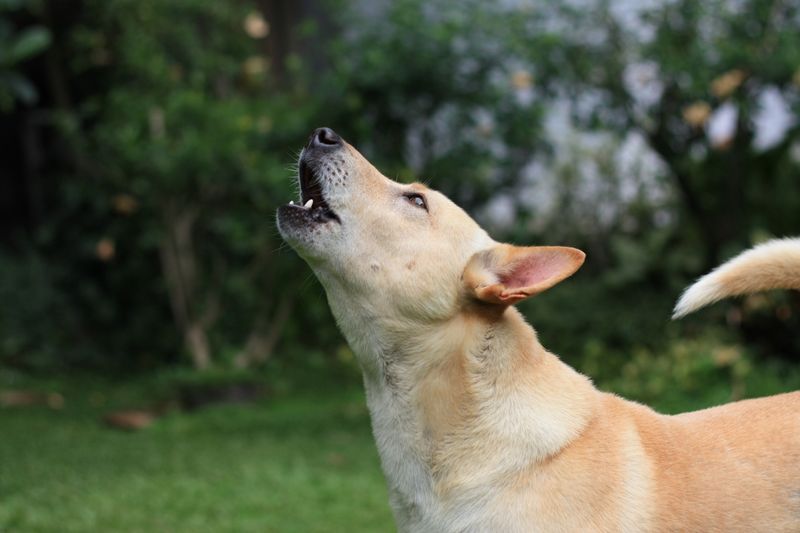
Ever noticed your dog howling at sirens or musical instruments?
This response to high-pitched sounds is common among canines. They possess an acute sense of hearing, which makes certain sounds irresistible.
When a siren wails or a high note strikes, it triggers your dog’s instinctive howl. To them, it might sound like another dog calling.
This behavior is a mix of curiosity and instinct. While it can be puzzling, it’s a fascinating glimpse into how dogs perceive the world of sound around them.
3. Loneliness Or Anxiety
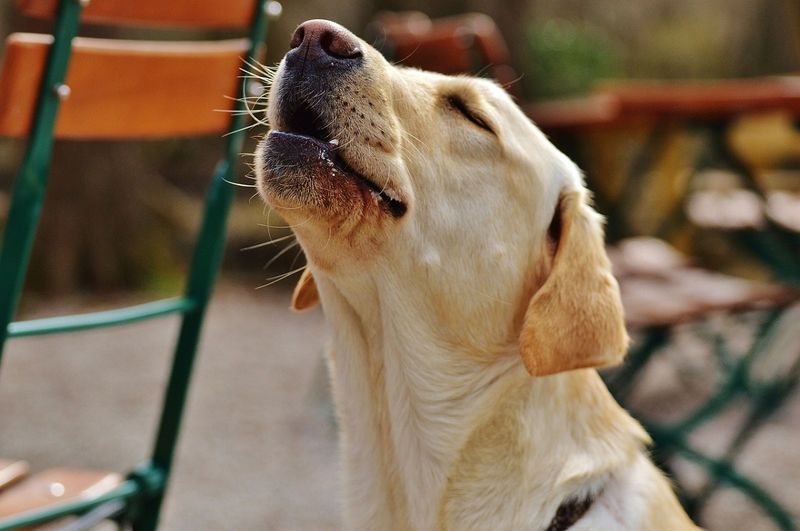
Sometimes, howling is a sign of loneliness or anxiety. Dogs, much like humans, can feel the sting of solitude. When left alone, they might howl to express their distress or to call for company.
This is especially true if your pooch isn’t used to being alone. A howl can be their way of saying they miss you.
Addressing this with soothing music or a friendly toy might help. Understanding their feelings can turn that lonely howl into a happier wag of the tail.
4. Seeking Attention
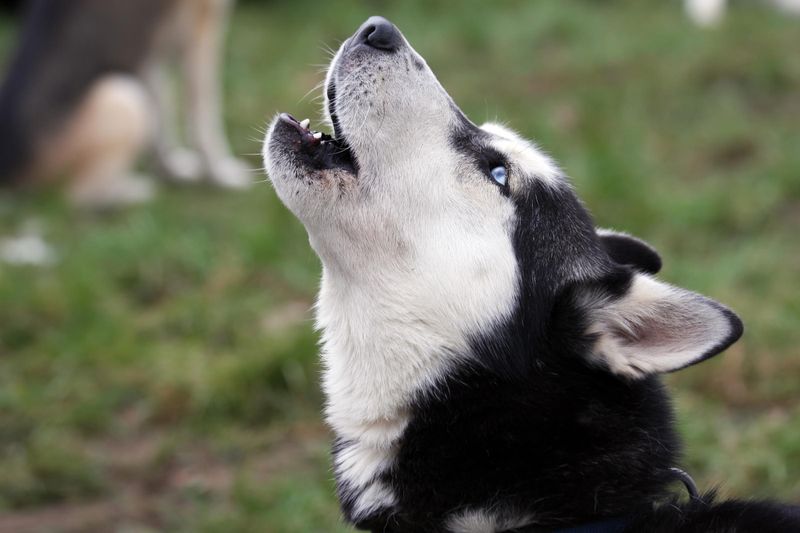
Some dogs howl merely to grab your attention. Picture your furry friend realizing that a howl makes you look their way. It’s like they’re saying, “Hey, notice me!”
This tactic often works, as owners tend to respond quickly to a howling dog. Positive reinforcement can teach them other ways to seek attention.
By engaging with your dog in fun activities, you can channel this behavior constructively, ensuring their howls are heard for the right reasons.
5. Expressing Excitement
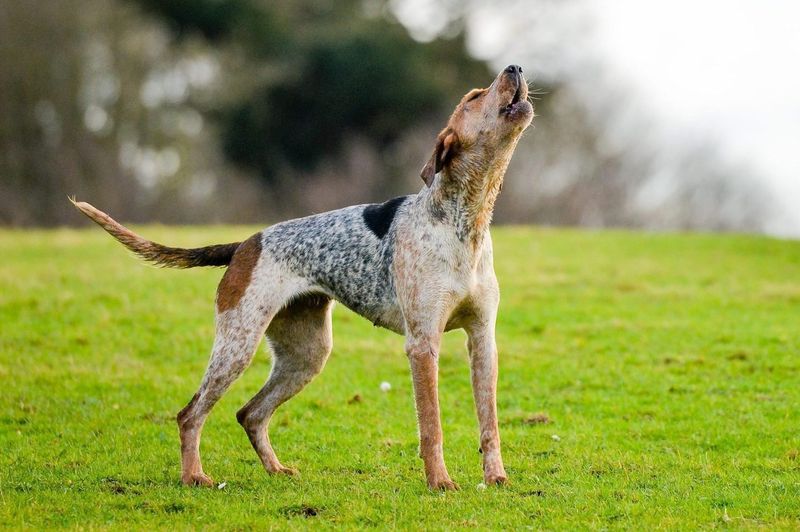
Howling isn’t always about distress. Sometimes, it’s pure excitement! When dogs are thrilled, they might let out a joyful howl, adding to the fun.
Envision a dog bursting with happiness, unable to contain their glee. Howling can be their way of joining in on the excitement.
During playtime or when greeted by beloved family members, a dog’s enthusiastic howl is simply an audible expression of joy. It’s their version of cheering!
6. Medical Reasons
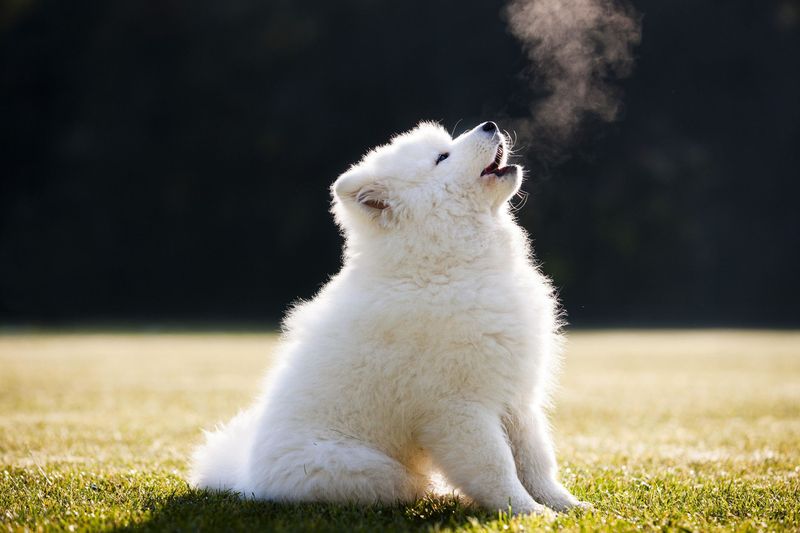
Occasionally, howling can signal discomfort or pain. Your dog might be trying to communicate their distress through vocalization.
If you notice persistent howling, especially with other unusual behaviors, a vet visit might be necessary. It’s their way of saying something isn’t right.
Understanding the nuances of their howl can help catch early signs of health issues. Being attentive to these cues ensures your furry friend’s well-being.
7. Territorial Behavior
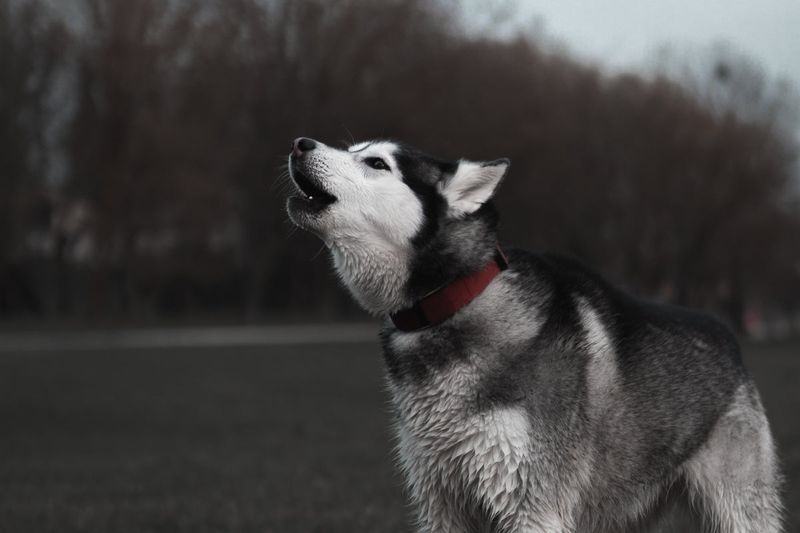
Dogs are naturally territorial, and howling can be a declaration of ownership. Imagine your dog standing guard, announcing to intruders that this is their domain.
This behavior dates back to their wild ancestors, who used howling to ward off potential threats.
By understanding this, we recognize howling as a form of protection. It’s an audible fence, marking their home as a safe haven. This protective instinct is hardwired in them.
8. Mimicking Wolf Ancestry
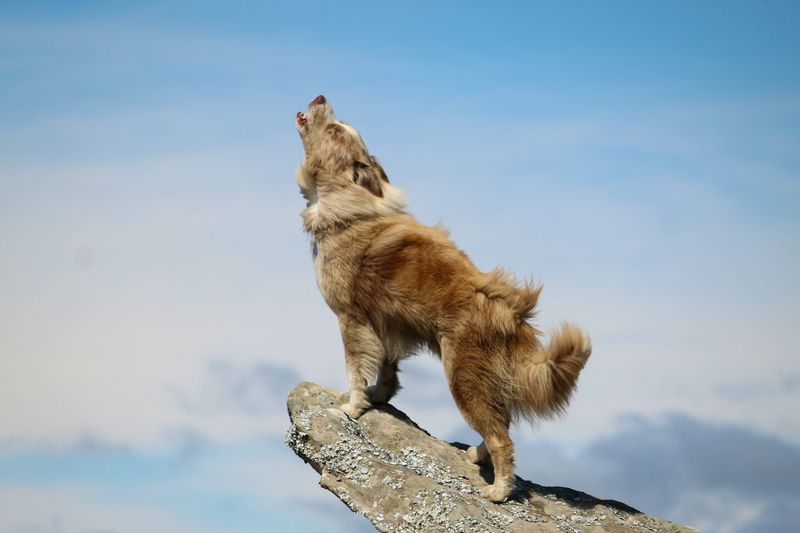
Howling is a trait inherited from their wolf ancestors. Even in modern dogs, this ancient behavior lingers. Picture your dog channeling their inner wolf when they let out a howl.
This connection to their roots is fascinating, as it ties them to a wild past and reminds them of where they came from.
Understanding this ancestral link enriches our appreciation for their howling. It’s more than sound; it’s a deep-seated part of their heritage, echoing the calls of the wild.


